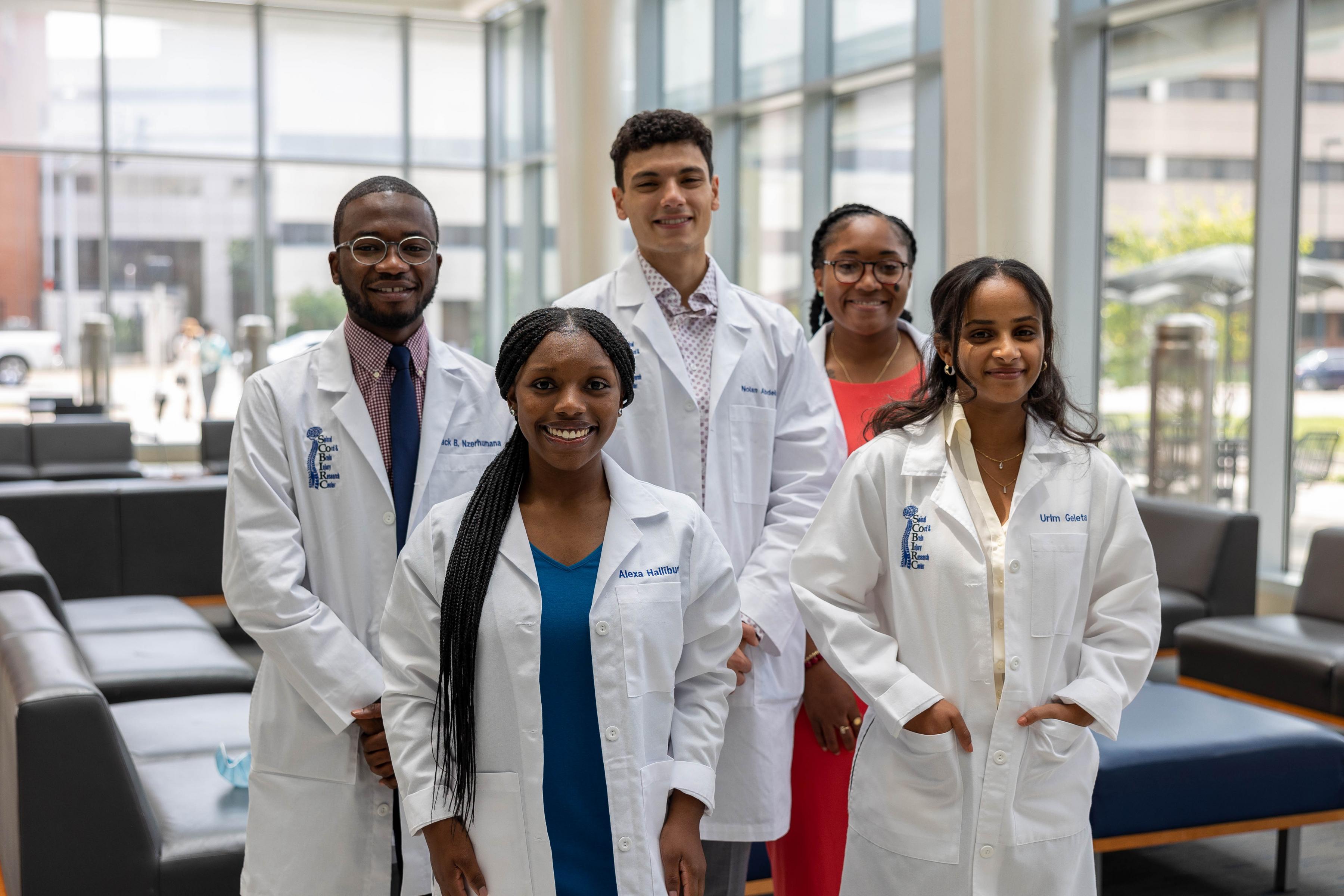One Year Later, UK AARTS Program Exceeds Expectations
Jordon Burdette, a senior neuroscience and psychology major, was minutes away from presenting to a crowd of University of Kentucky scientists when the nerves set in. Her presentation, focused on cellular regeneration and spinal cord injury, was a culmination of a year of research she had worked on with her mentor, Warren Alilain, PhD, associate professor of neuroscience.
Burdette pushed through those nerves, and Dr. Alilain said she “crushed” it. She left feeling proud of her accomplishment and thankful for the opportunity to study a topic she didn’t expect to ever pursue.
Burdette was one of five undergraduate students in the inaugural class of UK’s African American Research Training Scholars (AARTS) program. As part of the program, she received a $5,000 scholarship for research training in neurotrauma, with the opportunity to present her findings in August 2021.
Black faculty and students are heavily underrepresented in the field of neuroscience, and the AARTS program was established to enhance the pipeline. UK Spinal Cord and Brain Injury Research Center (SCoBIRC) faculty and staff collaborated with the College of Medicine Office of Diversity, Equity, and Inclusion. Those involved in the creation of the AARTS program include Dr. Alilain, who serves as the College of Medicine’s diversity and inclusion ambassador for SCoBIRC; Joe Springer, PhD, professor of neuroscience; Mark Prendergast, PhD, professor of psychology and director of UK’s neuroscience bachelor’s degree program; and Zelneva Madison, center administrator of SCoBIRC.
Students in the AARTS program inaugural class were immersed in a full-time summer research laboratory setting, which exposed them to the day-to-day experience while allowing them to network with expert scientists, PhD students, MD/PhD students, and other undergraduate students.
To Dr. Prendergast, the results of its first year were even more positive than he expected. He said the team was thrilled to host UK President Eli Capilouto at the first annual AARTS program symposium so that he could see, firsthand, SCoBIRC’s commitment to promoting diversity, equity, and inclusivity in neurotrauma research.
“The AARTS program more than exceeded our expectations, with regard to both the level of student interest in the program and the depth of relationships formed between faculty and trainees,” Dr. Prendergast said. “The program was designed to provide immersive experiences in research, professional development, and mentoring. Our faculty and trainees demonstrated genuine commitments to each aspect of the program’s mission, and it is clear that long-lasting relationships, which will benefit the trainees for years to come, were formed.”
Burdette always had her eyes set on a medical career, but the AARTS program opened her to all of the possibilities. For example, she hadn’t imagined that a research career would allow her to express her creative side. She’s an artist who loves to draw. Thanks to being connected with Dr. Alilain through the AARTS program, she not only discovered a passion for research, but she also incorporated her artistic talents by drawing diagrams and images to accompany research notes.
“I knew that Jordan had a lot of imagination. And when she finally joined the laboratory, it was even more than I imagined,” Dr. Alilain said. “She came in with a lot of energy and a lot of questions that I never considered myself. And it was a learning experience for me, too.”
Dr. Springer saw similar results with Urim Geleta, a senior neuroscience major he mentored through the program. He said that her potential shined through with her outside-the-box thinking and innate analytical skills.
“She came up with a possible interpretation that I had not even thought of,” Dr. Springer said. “Right then, you knew that she got it. She understands both technically and methodologically, but she also understands the science in such a way that she’s able to synthesize an answer. That’s something that I’ve only seen when I’m dealing with graduate students.”
Dr. Springer said the program is designed to expose students to the field of neuroscience, and that sometimes, it is better for students to learn early on whether they want to pursue that career. After a successful first year, program leaders have opened the program to include not only neuroscience, but any science- or research-related disciplines of interest.
Thanks to their experiences in the AARTS program, Burdette and Geleta are both planning to work toward a combined MD/PhD to become physician-scientists.
“For anybody that is looking into the program, even if you don't have research experience, don't be afraid,” Burdette said, “because going into research, there are a lot of things you're not going to know. But that's really the point of research – to learn and grow.”
***
SCoBIRC is accepting applications for its AARTS program from qualified African American undergraduate students. The award of $5,000 will cover a summer stipend ($3,000) and travel expenses ($2,000) to present at a national meeting.
Click here to learn more and for how to apply.
